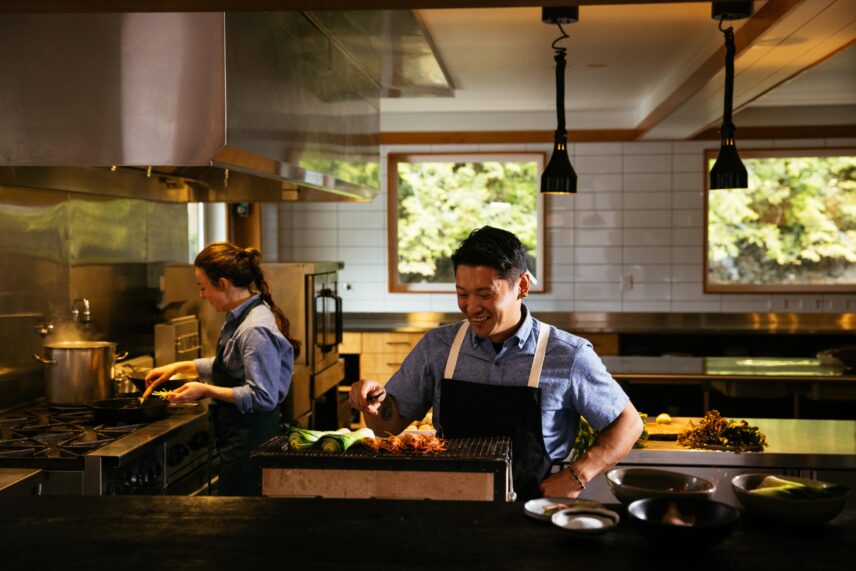The Road to Change
Meet Linnéa LeTourneau, the Food, Beverage, and Accommodations Manager at Nimmo Bay. We sat down with Linnéa to do a deep dive into the culinary scene at the resort. This is a story about breaking the mold and working hard to build an innovative and collaborative kitchen environment.
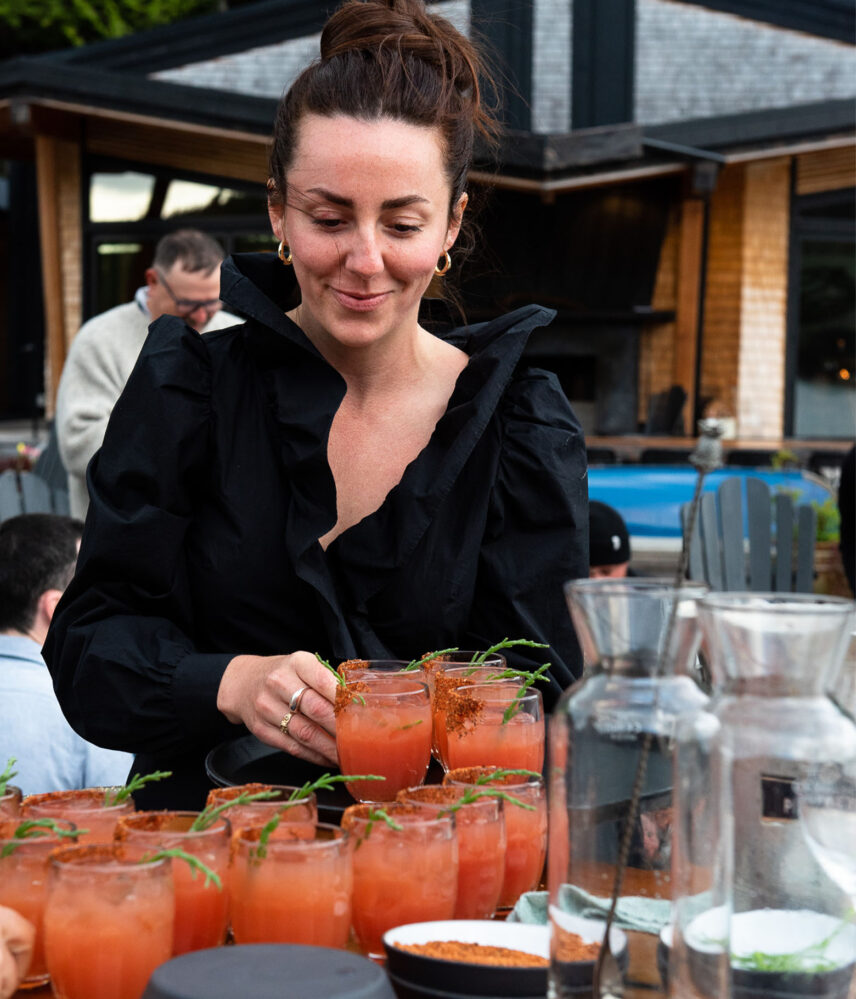
Early Inspiration
To get a full picture of the ideas that Linnéa brings to Nimmo Bay, we must first look into her culinary history. She never imagined that her life would result in becoming a chef. Her first real connection to food was a fascination with the food network when she was young. However, she was more so drawn to the chefs over the food they were cooking. Ina Garten, Bobby Flay, and Giada De Laurentiis captivated her with their personalities. Throughout high school, she would cook for her siblings and friends, but it wasn’t until Linnéa went overseas to the UK as an au pair, that it ever crossed her mind to seriously consider cooking as a career.
During that time living with the family, she would cook casually for them and her friends. She grew close with the grandmother of the family, who knowingly watched and experienced her cooking. As her time with them was coming to a close, the grandmother asked if becoming a chef was ever on her radar. It was this prompt that led Linnéa to immediately start researching culinary schools in Vancouver.
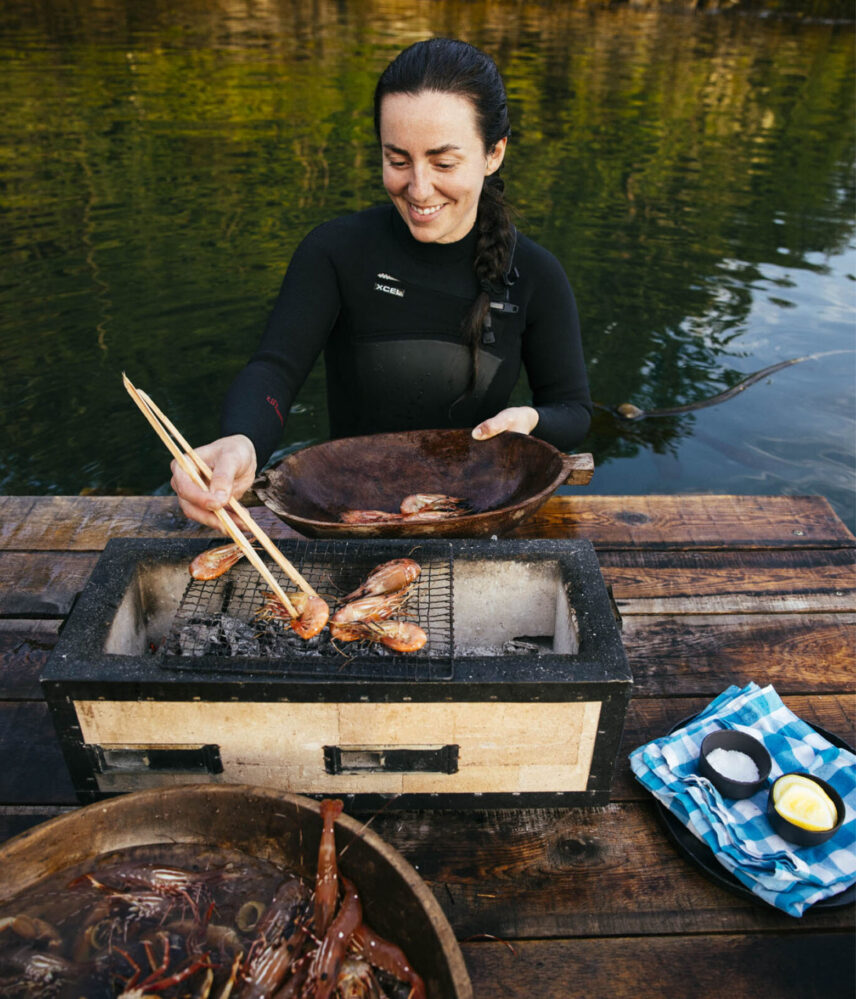
First Experiences in the Kitchen
After culinary school, at age 21, Linnéa cut her teeth at the Hawksworth in Vancouver. This launched her into the world of fast past paced, intense professional kitchens. From epic weekend brunch services, to catering intimate gatherings and large events, she learned to move quickly and how to act.
After a year and a half at the Hawksworth, she went through a period of immense change. It was time to get out of Vancouver. Linnéa sold everything she owned, applied for a French visa, and bought a one-way ticket to Paris, without knowing the language or a single soul.
With her talent and skill, she landed a job quickly at a restaurant making brilliant food. However, this was her first taste of the harsh reality of toxic kitchen culture. She was surrounded by men who refused to speak English and were often outwardly mean to her. To separate herself from the rest of the kitchen, she begged the head chef to let her take up the newly open pastry position. She’d never done pastry before, but this would have her working in the basement of the building, away from the rest of the team and on her own. Through trial and error, she taught herself the skill of pastry cookery in Paris, France. She describes this as likely the hardest 8-months of her life.
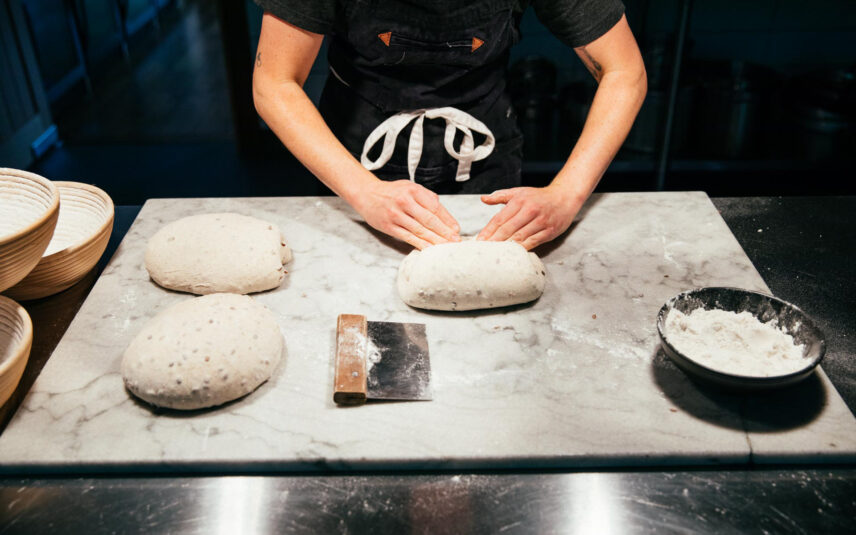
‘Yes Chef’ Kitchen Culture
At this point, Linnéa would recall a conversation her mother had with her at the start of this culinary journey. She tried to talk her out of pursuing a career in the kitchen, knowing how difficult it could be.
It can be an extremely difficult life to live and the work environment and people can be harsh. “…I think that’s why people, a lot of the time, after 10 years of cooking, they leave kitchens because it’s just too much, it’s unsustainable. It is a super toxic lifestyle that can intrude into your personal life”. When she looks back on her career so far, she realizes that she was a part of the toxic system back then. However, it has led her to develop a deep passion for improving kitchen culture. In striving to find something more sustainable for herself, it naturally progressed into creating a positive and collaborative environment for the whole team.
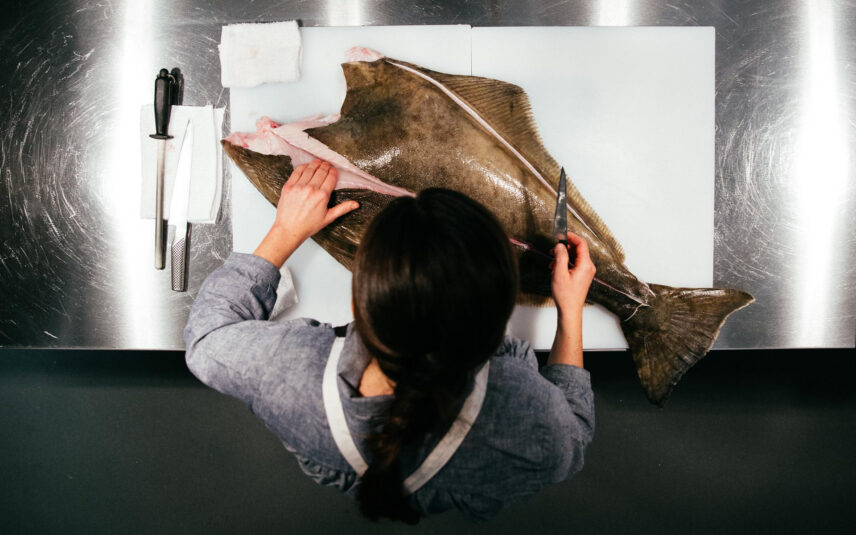
A New Methodology
While still in Paris, Linnéa experienced this kind of kitchen for the first time at Verjus. It was a collaborative space that truly kept the whole team engaged and happy. They would work together and come up with the menu as a whole, and every two weeks they would swap positions in the kitchen. The growth was immense, with the team teaching and learning from each other and an abundance of creativity flowing. “I think this environment serves not only the [food] program and who’s on the receiving end of the food, but also the team.”
This model stuck with her and helped shape the Nimmo Bay kitchen culture.
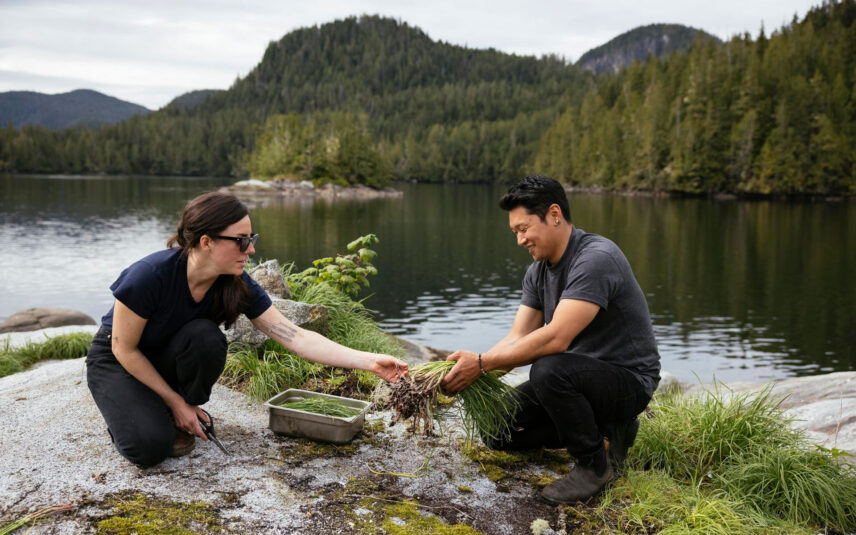
Starting at Nimmo Bay
When Linnéa started at Nimmo Bay in 2019, she worked under prior Executive Chef David Hassel. David started the initial transition of the culinary program by connecting the resort to local farms and producers on Vancouver Island. Linnéa never imagined she’d be at the resort long term; she was all ready to jet off to New Zealand or Scandinavia. But, “I just fell in love with the place, the family, Fraser’s vision, and just the possibilities here”.
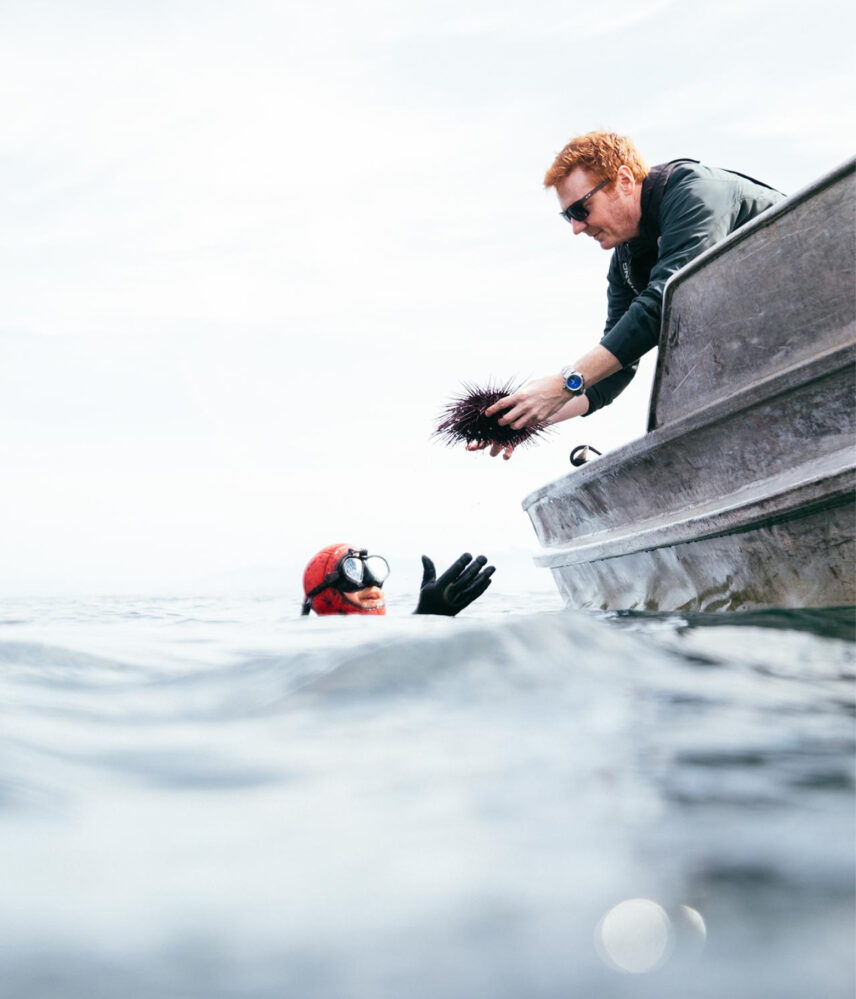
During the next phase in 2020, David decided to move on to a different opportunity. This lead Linnéa, alongside Tim Larson, to take over as Co-Executive Chefs. Tim brought prior experience running a restaurant and Linnéa was able to learn the backend systems and ordering from him. It was a small team that year due to the pandemic, it was stripped back and simplified. This opportunity allowed for her creativity and style of cooking to shine.
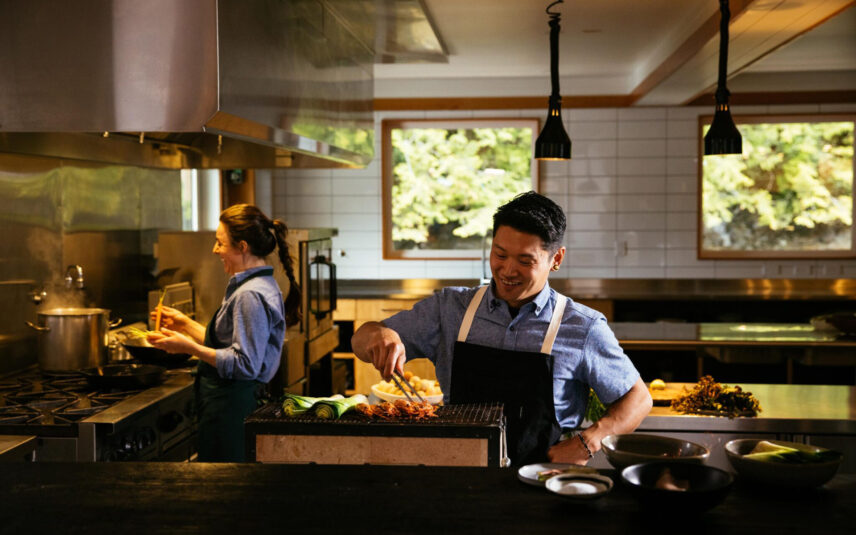
Equalizing the Kitchen
Fraser Murray, Nimmo Bay Owner and Operator, was another driver for the shift in culinary culture at the resort. He is continually a champion for Linnéa’s ideas and pushes her to expand the culinary program beyond the imaginable.
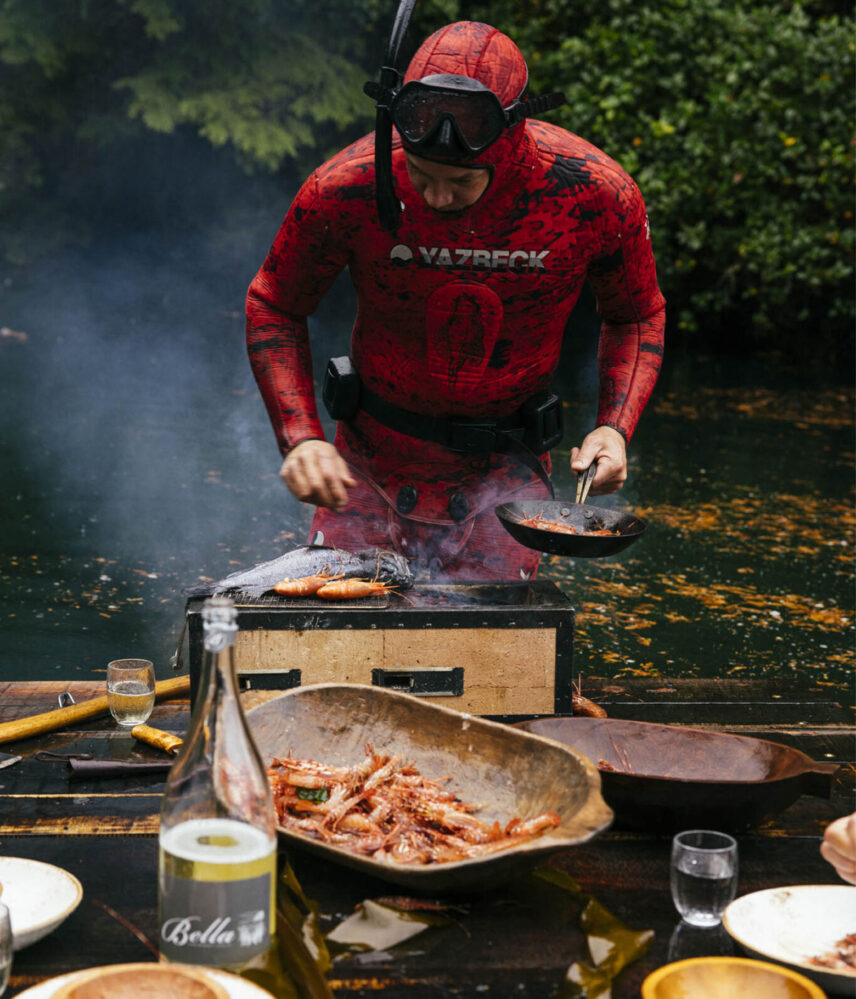
The vision came to fruition when Linnéa removed Executive Chef from the Nimmo Bay lexicon and became the Food and Beverage Manager in 2022.
“When I became ‘Executive Chef’, I removed that word from my title, no one was allowed to call me that. I feel like it separates me from the rest of the team. Whereas if we’re all together doing the same thing working for the same goal, why is one person called chef and no one else?”.
It’s also important to have cohesion and equality between the front of house and kitchen team. Often, in other kitchen environments, there is a great divide between the two. The kitchen emanates aggression which leads to fear and apprehension from the front of house. You’re supposed to be working toward a shared goal and experience for the guest. Linnéa never understood how this tumultuous dynamic would help contribute to that end goal.
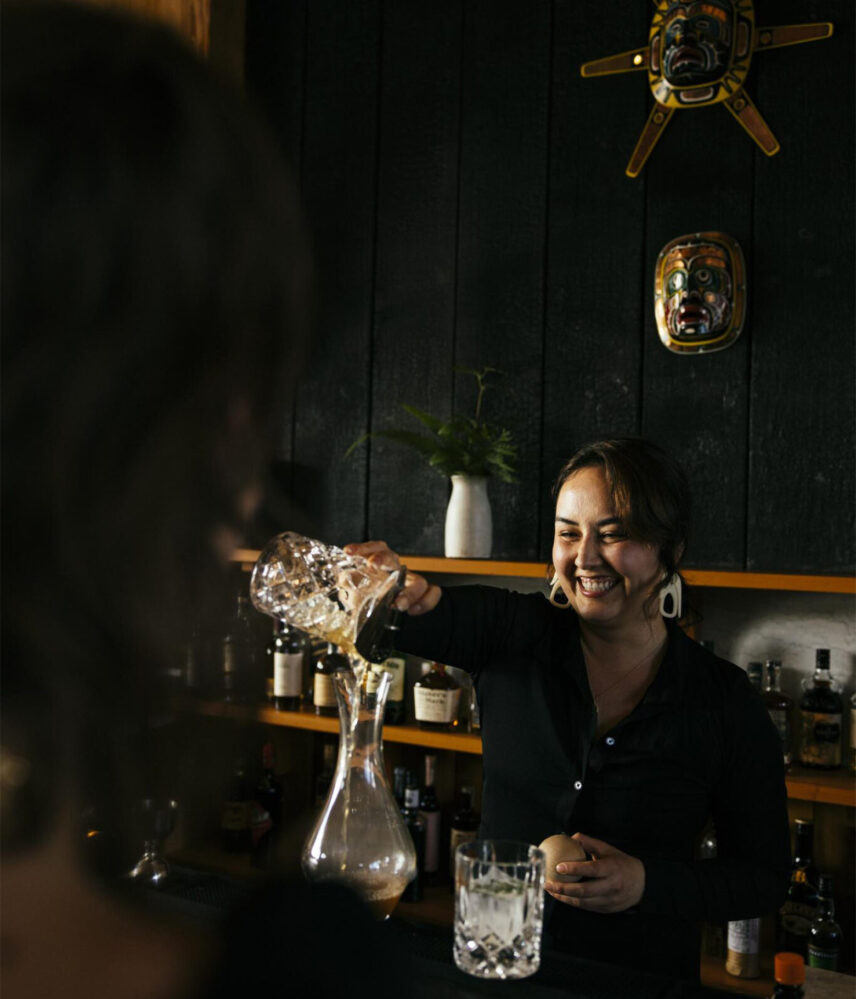
A Team Effort
At Nimmo Bay, this culture expands beyond just the kitchen walls and our restaurant Little River. The culinary program relies on the expertise of other team members. Food and drink are weaved into everything from our wellness practices to coastal boating adventures. Everyone needs to feel connected to its purpose and importance to provide the most outstanding culinary experience to our guests. We’re also immensely grateful to have a bounty of fresh ingredients in our own backyard. The Great Bear Rainforest is lush with edible treasures. The kitchen relies on the expertise of those who have a deeper knowledge of the waters and forests when foraging for these local touches for dishes.
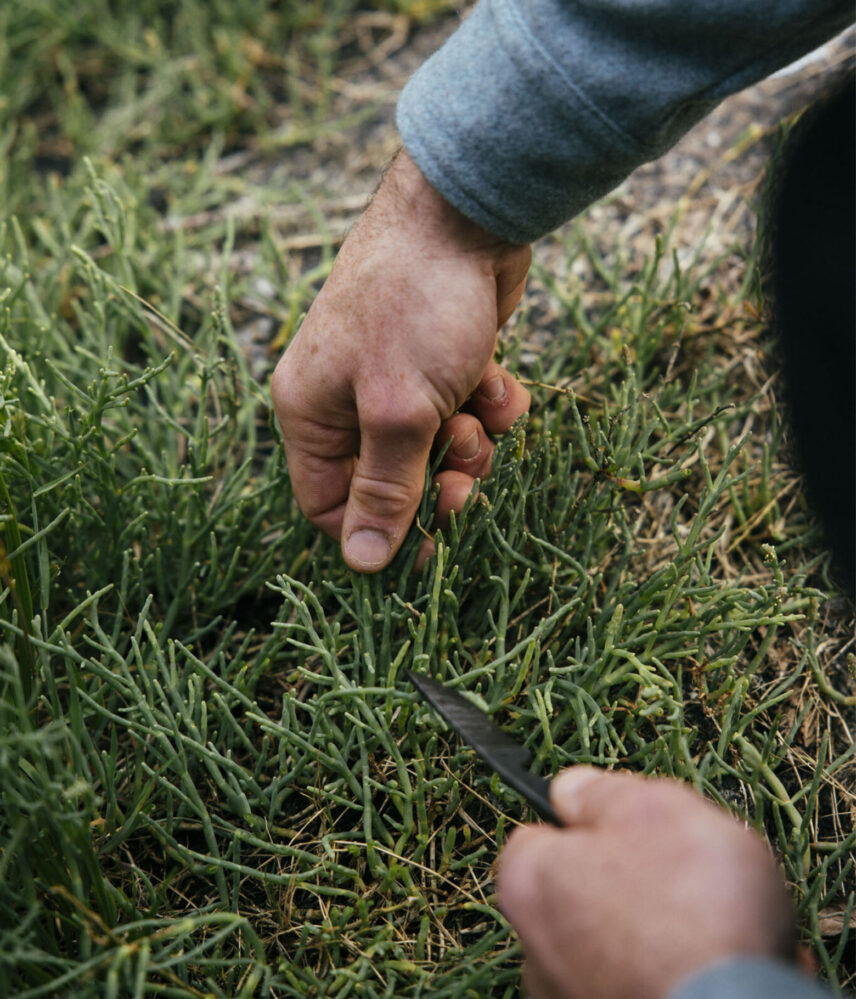
A Cohesive Vision
These small changes build up to create a fun environment where people truly feel their opinions are heard and acknowledged. That their skills are valued and that they have some room to play around. There are goals and boundaries to guide, of course, but it gives team members a sense of ownership, pride, and belonging in their workplace. This ultimately leads to a better result on the plate of food you’re putting in front of the guests. You can taste that joy in the food you’re eating.
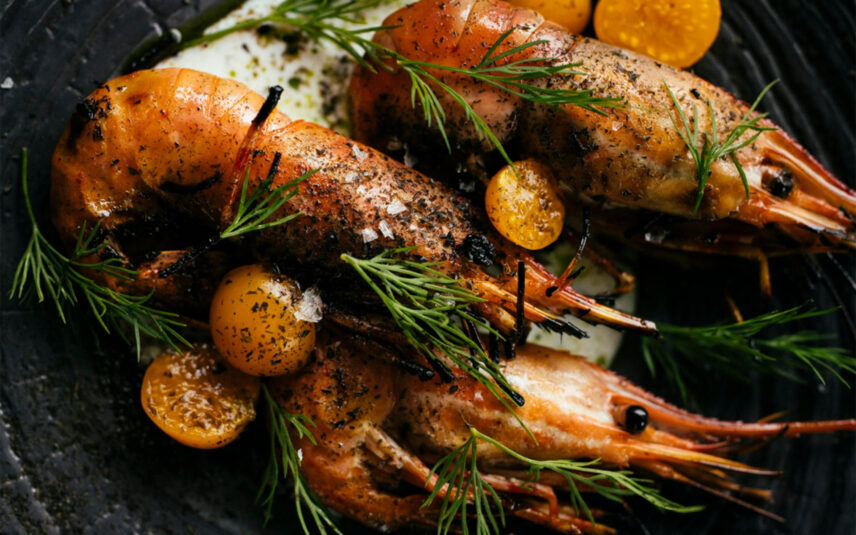
This evolution hasn’t been a quick transition and it was no easy feat. The kitchen cultural history and dynamics can hold strong, and people fear change. “But over the years, I feel like we’ve made it like quite a cohesive team. It almost is one team just working separately throughout the day, which is exactly what I want”.
The hard work is absolutely worth it for Linnéa, especially as these practices go beyond the metaphorical “walls” of Nimmo Bay. While it’s incredibly beneficial to grow this kind of culture in our own kitchen, it’s Linnéa’s goal to have a wider impact on the culinary industry. When team members who have cooked and learned in the Nimmo Bay kitchen are ready to spread their wings and go off to other kitchens around the world, they can take these philosophies with them.
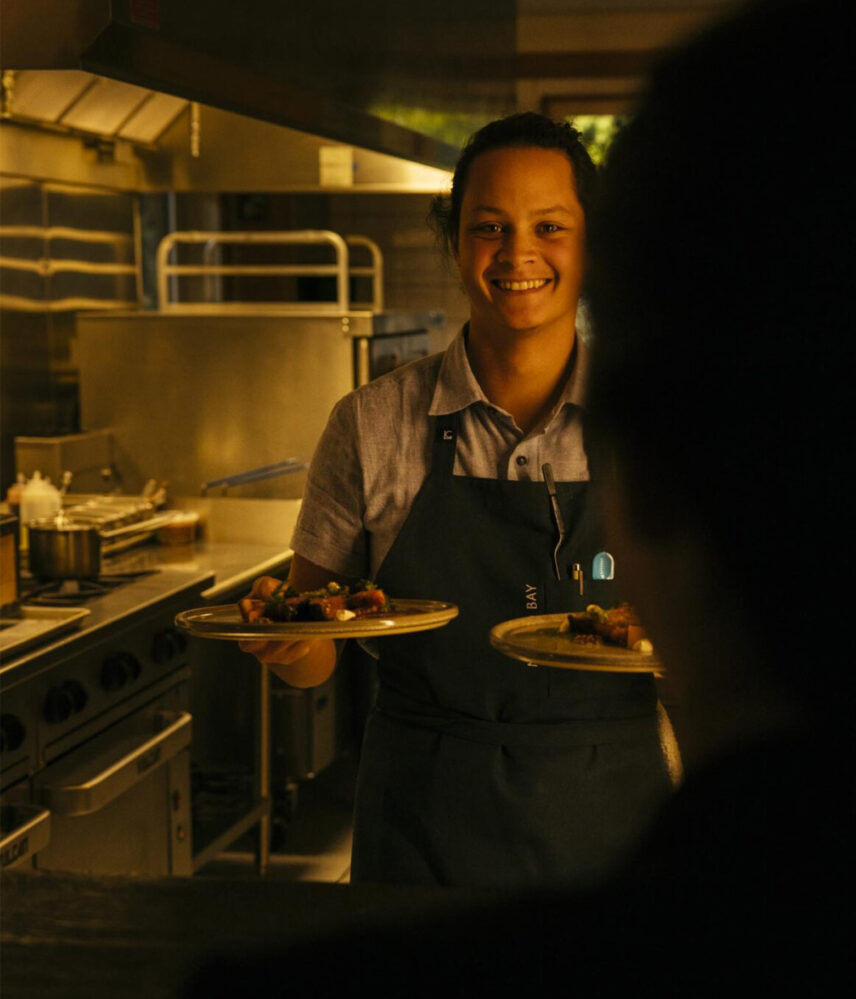
Words by: Alexandra Janes
Photos: Jeremy Koreski
